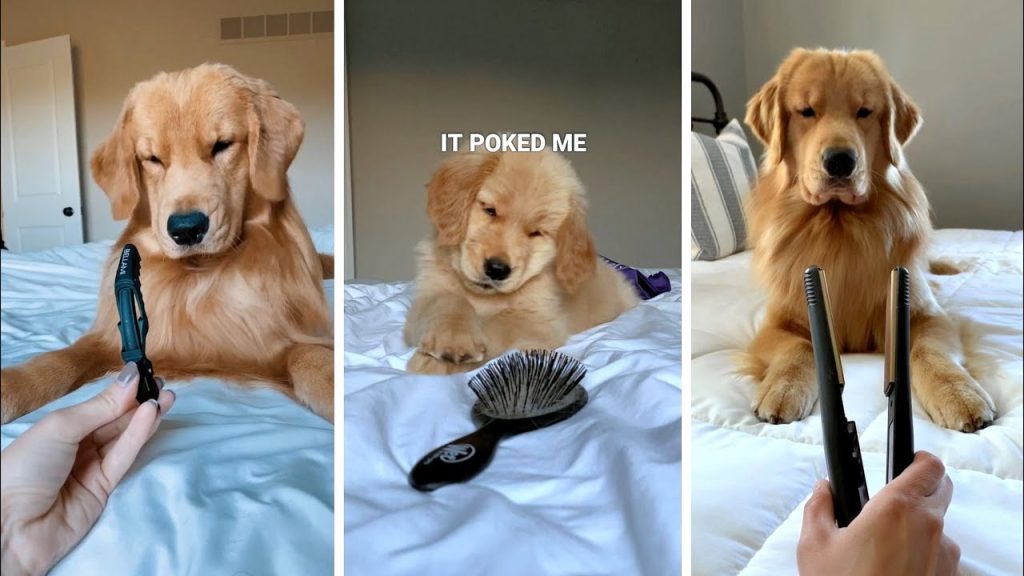“Heckin’ Dog” is the term that has become popular in online groups within the ever-changing environment of slang on the internet. This colloquial phrase has become a potent way to convey love and excitement, especially for adorable or silly pets. We examine the grammatical structure, history, development, and significance of the “Heckin’ Dog” phenomena in this thorough investigation.
Grammatical Structure and Origins
Understanding “what the heckin dog”
Grammatically, “Heckin‘” functions as an intensifying adjective modifying “dog.” The term originated in online subcultures as a catchy and sanitized version of expressing extreme excitement for adorable dogs.
Structural Components
The term always features two main components:
- “Heckin'” – A cutesy intensifier
- “Dog” – Reference to a canine companion
This structure is often followed by positive adjectives like “good,” “cute,” or “sweet,” emphasizing the overwhelming cuteness of the dog.
Early Internet Slang Roots
Such dogs surfaced in the early 2010s on social media platforms like Tumblr and Reddit. It became popular within the online “doggo speak” meme culture. The term evolved from existing internet slang and served as a substitute swear word, allowing users to express intensified excitement without profanity.
Evolution Through Doggo Memes
Within communities like Reddit’s /r/rarepuppers, “Pet Dog” flourished as users shared photos and videos of cute dogs with captions using internet-speak. This contributed to the term’s integration into the lexicon of online dog culture.
Why “Heckin'” Stands Out?

Clean and Silly Nature
What distinguishes “Trendy dog breeds” from other intensifiers is its innate silliness and cleanliness. Unlike more abrasive terms, “Heckin'” carries no negativity, making it a perfect fit for conveying the gleeful absurdity of dog behavior on the internet.
“Heckin’ Dog” in Other Languages
Japanese: “check-in いぬ” / “check-in inu”
In Japanese, “heckin'” is absorbed as a loan word, combined with the Japanese word for dog, “inu.”
Spanish: “Perro Heckin'”
In Spanish, “heckin'” remains intact as a loan word while the English “dog” converts to the native “perro.”
French: “ouf heckin chien”
The French incorporate creative flourishes, with “ouf” acting as an intensifier describing the unbelievable or crazy nature of something, combined with the French word for dog, “chien.”
Amo Hackin’ Kukur
In Nepali, “kukur” refers to dogs. Nepali speakers might construct phrases like “amo hackin’ kukui,” combining the native word for love, “amo,” with the English slang terminology.
Use Cases of “Heckin’ Dog”
Expressing Affection and Positivity
People use “Heckin’ Dog” for various reasons:
- To actively be cute or funny, embracing absurdism and silliness for added joy and humor.
- To express deep affection for cherished pet dogs, conveying warmth and enjoyment of canine companionship.
- As an intensifier, strengthening positive canine qualities such as “good,” “cute,” or “fluffy.”
Trendiness and Cultural Capital
The use of “Cute animal” contributes to cultural capital online, showcasing membership in trendy internet circles and distinguishing younger internet users from older demographics.
Popular Usage of “Heckin’ Dog”

Social Media Comments
The most common usage occurs in social media comments, where users express their admiration for cute dog photos. Captions often include phrases like “What a heck, good doggo!” or “Heckin floofer pupper!”
Dog Memes and Hashtags
“Cute dog” remains a popular caption style for image macros and viral dog videos. Hashtags like #heckindog are used to track or spread dog-related social media content.
Spicing Up Informal Writing
Internet slang, including “Heckin’ Dog,” has found its way into informal communications like texts, emails, or chat messages. This usage adds a touch of meme-y zest to everyday sentences.
“Heckin’ Dog” in Popular Culture
Poems & Songs
The influence of the dog has extended to poems and songs. Artists incorporate the phrase into creative works, highlighting the cultural obsession with all things doggo.
Movie/TV Appearances
Scriptwriters have included references to internet culture, with characters using “Heckin’ Dog” dialogue in TV shows like “New Girl” and movies like “The Kissing Booth.”
Brand Marketing and Merchandise
Brands seeking to tap into the viral doggo popularity have adopted “Heckin’ Dog” in their social media marketing. Additionally, merchandise featuring the phrase, such as stickers, pins, mugs, and t-shirts, has become popular among enthusiasts.
The Impact of “Heckin’ Dog”
Fostering Doggo Subculture
The attractive pet has played a crucial role in fostering subcultures centered around viral dog content and memes. Online communities celebrate dog mania through shared vocabulary and online networks.
Creating Community
For dog lovers, the shared vocabulary of words like “Heckin'” helps create connection and community. It allows people worldwide to bond over their shared appreciation for enthusiastic dog love.
Annoying Detractors
However, the overt silliness of phrases like “Viral dog” has sparked detractors who find it excessively childish or reflective of what some term “internet cancer.”
Driving Real-World Dog Crazes
The online hype around dog memes has translated into real-world impacts, fueling the demand for trendy dog breeds and influencing consumer behavior in the pet industry.
The Future of “Heckin’ Dog”
Maintaining an Online Presence
If current trends persist, “Heckin’ Dog” is likely to maintain a strong presence in online venues. New generations of meme-literate youth will likely uphold its usage on social platforms.
Evolution & Adaptation
Like any internet lingo, “Dog” will continue evolving into new forms. We may witness variations for other cute animals and shifts in connotations from pure cuteness to broader enthusiasm or positivity.
The Psychology of “Heckin’ Dog”

Cultural Obsession with Dogs
The deep cultural affection for dogs forms the foundation of the “Heckin’ Dog” phenomenon. Dogs have been integral to human history as companions, workers, and beloved pets.
The “Cute Response”
Psychologically, the overwhelming delight towards cute phenomena, known as the “cute response,” is a fundamental human behavior. They provides an outlet for this innate, biologically driven reaction.
Absurdist Internet Humor
It aligns with the surge in online absurdist humor, which relies on silliness and strangeness to generate joy and laughter. The term taps into the internet’s penchant for weird comedy.
Final Thoughts
In conclusion, “Heckin’ Dog” stands as a cultural phenomenon born from the internet age. Its unique blend of silliness and positivity allows people across languages and nations to tap into the widespread affection for adorable pups. Whether it continues to thrive online or transforms into new linguistic forms, “these dogs” remains a testament to the internet’s influence in shaping global expressions and behaviors.
FAQs
When did “Heckin’ Dog” first emerge?
The term likely originated on social media sites like Reddit and Tumblr in the early 2010s within doggo meme subcultures.
Who typically uses the phrase “Heckin’ Dog”?
Mainly internet-savvy young people like millennials and Gen Z, who participate in social media jokes and meme culture.
What does it mean to call a dog “Heckin'”?
It’s an intensifier indicating extreme cuteness, silliness, or positivity towards the dog. The term is always affectionate rather than negative.
Is “Heckin'” only used to describe dogs?
While dogs are the original and most common use case, over time, “Heckin'” has been extended to caption other cute animals like cats, too.
Why did this silly slang term gain such popularity online?
It uniquely blended widespread cultural obsession with dogs and emerging absurdist internet humor reliant on strange cuteness and nonsense.
Are some people annoyed by the spread of “Heckin’ Dog”?
Yes, many find doggo-speak like “Heckin'” to reflect excessively childish or annoying internet culture. Detractors believe it sounds ridiculous to enter mainstream conversations.
Has the meme had real-world impacts beyond the internet?
Absolutely – by fueling surging demand for trendy dogs like French Bulldogs. The viral online dog hype directly spills over into consumer purchase behavior.
What is the future outlook for the slang phrase?
It has shown remarkable cultural staying power so far. While unlikely to fully enter offline lingo, “Heckin’ Dog” will likely persist digitally on social platforms for years to come – especially evolving into new animal variants.
What are some alternatives to saying “Heckin’ Dog”?
Simple phrases like “good boy/girl” or foreign language equivalents like “kawaii” in Japanese carry similar meanings.

